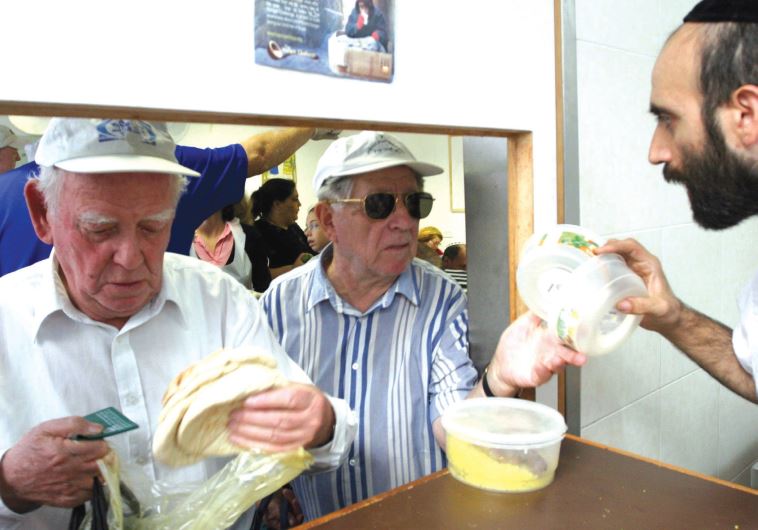Soup kitchens feeding Holocaust survivors to remain open, Knesset panel says
The Claims Conference decided to stop funding numerous soup kitchens that feed thousands of Holocaust survivors.
 A volunteer distributes food at a soup kitchen.(photo credit: ILLUSTRATIVE: MARC ISRAEL SELLEM)Updated:
A volunteer distributes food at a soup kitchen.(photo credit: ILLUSTRATIVE: MARC ISRAEL SELLEM)Updated: